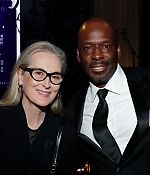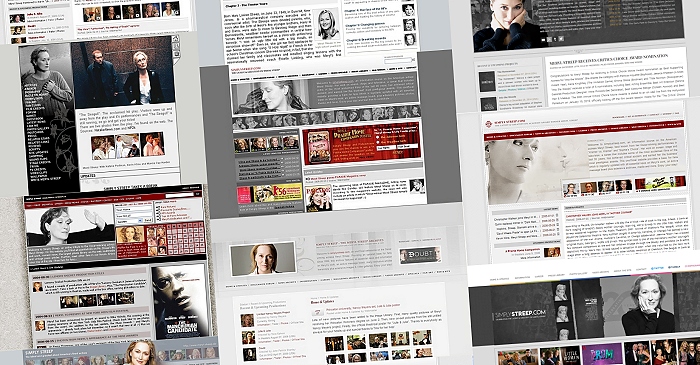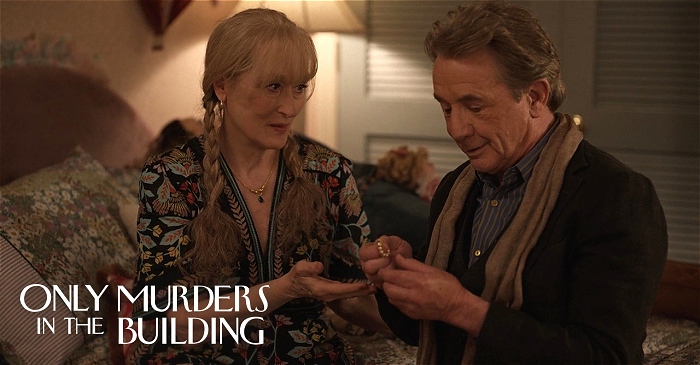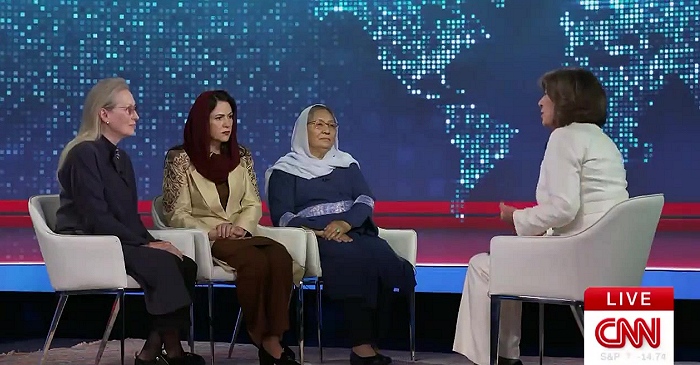
|
Streep Takes Comedy Role Seriously
The Morning Call ·
August 21, 1992
· Written by Paul Willistein
|
The role of fading screen star Madeline Ashton in “Death Becomes Her” represents another comedic turn for Meryl Streep, best known for high-profile dramatic roles in “Sophie’s Choice” (for which she won a best actress Oscar), “The French Lieutenant’s Woman,” “Plenty” and “Out of Africa.” Streep’s turn toward comedy began with more recent films: Susan Seidelman’s “She-Devil,” Carrie Fisher’s “Postcards from the Edge” and Albert Brooks’ “Defending Your Life.”
“I don’t want to ever have to do one thing,” Streep said. “And this (`Death’) is very different from `Postcards’ or `Defending Your Life.’ I had a career that was more dramatic. I was known for it. But whatever that first image is that you present to the public is very hard to overcome. Not that I wanted to. I was proud of my early film work and I just never got comedy scripts. There were lots of things that I’d have liked to have done, but I wasn’t in the line.” In “Death Becomes Her,” Streep’s character Ashton discovers a youth potion (administered by Isabella Rossellini) that is far better at staving off the aging process than the plastic surgery skills of her husband, Dr. Ernest Menville (Bruce Willis). Vying for the attentions of Menville is “Forever Young” self-help author Helen Sharp (Goldie Hawn). While the Robert Zemeckis-directed movie is played as black comedy, the Universal Pictures release has stirred debate about Hollywood’s and America’s obsession with youth.
“(The movie) takes the issue of that importance of looks, especially for women … to the extreme,” offered Streep. “What if you never had to change? Would there be any downsides? It’s an irony that this is a big Hollywood movie about something that Hollywood (does all the time).” The Vassar College graduate who began acting in college received a masters from Yale Drama School. After a summer with the O’Neill Playwrights Conference in Connecticut, Streep moved to New York where she appeared at the Phoenix Theatre, in Joseph Papp’s New York Shakespeare Festival and on Broadway. Her first screen role was as a working-class Pennsylvania girl in “The Deer Hunter.” Madeline Ashton in “Death Becomes Her” was something else again for Streep:
“I’ve never been a bimbo before, or someone you could say is straight down the line. Just in terms of the acting, I liked not having any contradictory emotions. It was a release to be so inane. “When I was playing her I was just sort of angry all the time. I didn’t like my clothes, my makeup, my hair. I think that people who are just unhappy with themselves because of the way they look – they’re horrible all the time.”
Does Streep know any people like that? “Yeah, me!” she said, laughing. “Death Becomes Her” is filled with state-of-the-art special effects, including – among other bizarre images – a one-foot hole through Hawn’s character’s torso and Streep’s character with her head on backward. Zemeckis, who has directed other big special-effects movies such as the “Back to The Future” and “Who Framed Roger Rabbit?,” explained:
“The effects, particularly with Meryl’s backward head and the hole in Goldie’s stomach -those actually couldn’t have been done a year ago. They could have been done differently, but we wouldn’t have been very happy with them.” In one sequence, a dummy of Streep’s contorted body is blended, or “morphed,” by computer into an image of the actress. To create the illusion of her head on backward, Streep’s torso and head were filmed separately with computer-synchronized, motion-control cameras. The texture and color of her skin was digitally sampled and a “twisted” computer-graphic neck was created. Ground-breaking work for effects like these was done on “Roger Rabbit,” “Back to the Future II” and “Terminator 2.” “We used computer graphics and digital imagery,” said Zemeckis. “Actually, Meryl’s neck is completely digitized. It’s completely created in the computer, which is a breakthrough thing because we were able to synthetically create skin texture that matched Meryl’s. That’s a big step toward the future, and it’s pretty spectacular.
“The hardest thing for Meryl was that she had to act from the neck down, and then six weeks later, we had to cut all that footage of Meryl with this bag over her head and edit it. “She had to then go back, and in the most bizarre circumstance, she was strapped to a swivel chair and surrounded by a blue screen. And then she had to do the performance under this bizarre situation. She did a spectacular job, remembering where her eyeline was and remembering (how to) recreate the performance.”
“Death Becomes Her,” rated PG-13, is now playing at AMC Tilghman 8, Lehigh Valley General Cinema, Eric Easton 6, AMC Quakertown 6 and Becky’s Drive-In.









